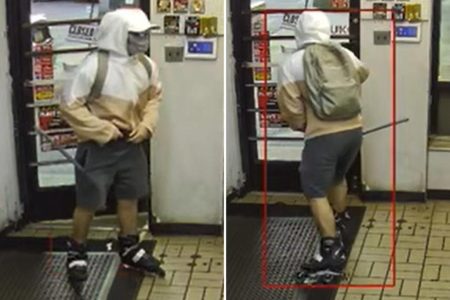This incident at San Diego State University (SDSU) underscores the dangerous consequences that can arise from hazing rituals and the culture of secrecy that often surrounds them. On February 17, 2024, during a party hosted by the Phi Kappa Psi fraternity, a pre-planned skit went tragically wrong, resulting in severe burns to a pledge and criminal charges against four fraternity members. The incident unfolded while the fraternity was already on probation for prior hazing violations, raising serious questions about the efficacy of the university’s oversight and the fraternity’s commitment to reform.
The details of the incident, as revealed by the San Diego County District Attorney, paint a disturbing picture of reckless behavior and a subsequent attempt to obstruct justice. Larsen, a 19-year-old pledge, suffered third-degree burns covering 16% of his body after being intentionally set on fire by another pledge, 20-year-old Christopher Serrano. The act was not a spontaneous prank but a premeditated stunt orchestrated by Larsen himself, along with 22-year-old Caden Cooper, the fraternity president, and 20-year-old Lucas Cowling, a member of the pledge board. The involvement of both pledges and leadership figures within the fraternity highlights a deeply ingrained culture that normalizes dangerous activities as part of the initiation process. The fact that underage drinking preceded the incident further compounds the recklessness and disregard for safety displayed by those involved.
Following the incident, the fraternity members allegedly engaged in a concerted effort to cover up their actions. They reportedly lied to law enforcement officials, deleted evidence, and instructed other fraternity members to do the same if questioned. This attempt to obstruct justice not only demonstrates a lack of remorse but also reveals a disturbing pattern of secrecy and protectionism within the fraternity. Such behavior perpetuates a culture where accountability is avoided, and risky behaviors are allowed to continue unchecked.
The university’s response to the incident involved placing the fraternity on interim suspension pending an administrative investigation. This action, while necessary, comes after a history of hazing issues within the fraternity, suggesting a reactive rather than proactive approach to addressing the problem. While the university emphasizes its commitment to student safety and well-being, the repeated violations by Phi Kappa Psi raise concerns about the effectiveness of existing preventative measures. A thorough review of the university’s policies and procedures regarding Greek life is warranted to ensure that adequate safeguards are in place to prevent future incidents.
The legal repercussions for the four fraternity members are significant. They have been charged with multiple felonies, including recklessly causing a fire with great bodily injury, conspiracy to commit an act injurious to the public, and violating the social host ordinance. These charges reflect the severity of the incident and the potential for long-term consequences. If convicted on all counts, they face up to seven years in prison. The legal proceedings will likely delve further into the dynamics within the fraternity, the extent of the cover-up, and the individual culpability of each defendant.
This case serves as a stark reminder of the dangers associated with hazing and the importance of fostering a culture of accountability within Greek organizations. Universities must implement robust oversight mechanisms and educational programs to address the root causes of hazing and promote responsible behavior. Fraternities and sororities, in turn, must prioritize the safety and well-being of their members and actively work to eliminate harmful traditions. Ultimately, creating a safe and inclusive environment for all students requires a collaborative effort from universities, Greek organizations, and the students themselves. The incident at SDSU highlights the urgent need for systemic change to prevent future tragedies and ensure that the pursuit of belonging does not come at the expense of safety and well-being. The long-term impact of this incident extends beyond the individuals involved, underscoring the need for a comprehensive review of Greek life practices and a renewed commitment to fostering a culture of respect and responsibility within these organizations.










